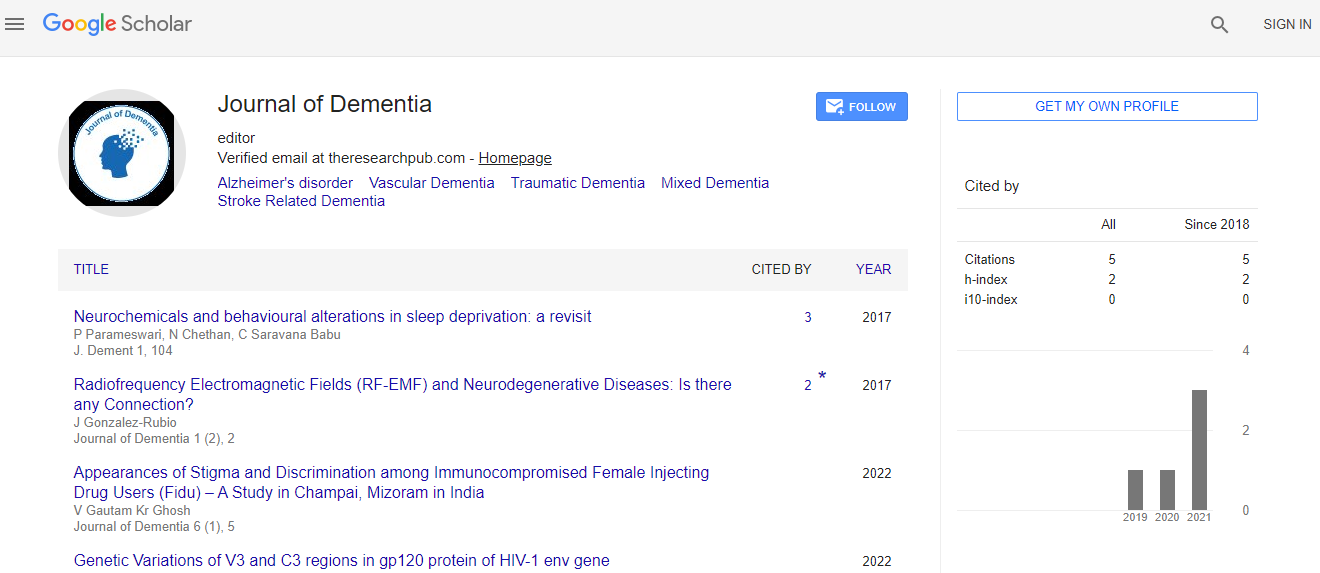Understanding Parkinsonâs Disease: Unraveling the Complexity of a Neurological Enigma
*Corresponding Author: Viren Morris, Department of nephrology Science, University of Science and Technology, Kenya, Email: viren_m@gmail.comReceived Date: Nov 01, 2023 / Accepted Date: Nov 28, 2023 / Published Date: Nov 28, 2023
Citation: Morris V (2023) Understanding Parkinson’s Disease: Unraveling the Complexity of a Neurological Enigma. J Dement 7: 187.
Copyright: © 2023 Morris V. This is an open-access article distributed under theterms of the Creative Commons Attribution License, which permits unrestricteduse, distribution, and reproduction in any medium, provided the original author andsource are credited.
Abstract
Parkinson’s disease (PD) is a complex neurodegenerative disorder characterized by the progressive degeneration of dopaminergic neurons in the substantia nigra region of the brain. This degeneration leads to a range of motor and non-motor symptoms, including tremors, bradykinesia, rigidity, and cognitive impairment. Despite extensive research, the precise etiology of PD remains elusive, involving a combination of genetic and environmental factors. This comprehensive review aims to elucidate the current understanding of the molecular and cellular mechanisms underlying PD pathology, exploring the interplay between genetic mutations, mitochondrial dysfunction, oxidative stress, and inflammation. Accurate diagnosis of PD remains challenging, particularly in the early stages when symptoms may be subtle. We discuss the evolving landscape of diagnostic tools, from clinical assessments to advanced neuroimaging techniques and biomarker discovery. Early and accurate diagnosis is crucial for implementing timely interventions and personalized treatment strategies. The review also addresses the role of emerging technologies, such as artificial intelligence and machine learning, in refining diagnostic precision and predicting disease progression. The treatment landscape for PD has witnessed significant advancements, ranging from traditional pharmacotherapies to innovative neuroprotective and regenerative approaches. Levodopa, the gold standard in PD pharmacotherapy, is discussed in conjunction with adjunct therapies and deep brain stimulation. Additionally, we highlight promising experimental treatments, including gene therapies, stem cell transplantation, and targeted neuroprotective agents, shedding light on their potential to modify disease progression and enhance patient outcomes. The impact of PD extends beyond motor symptoms, encompassing a spectrum of non-motor manifestations that significantly affect patients’ quality of life. This review examines the diverse array of non-motor symptoms, including autonomic dysfunction, sleep disturbances, and psychiatric complications. A comprehensive understanding of these aspects is crucial for holistic patient management and the development of targeted interventions.

 Spanish
Spanish  Chinese
Chinese  Russian
Russian  German
German  French
French  Japanese
Japanese  Portuguese
Portuguese  Hindi
Hindi 